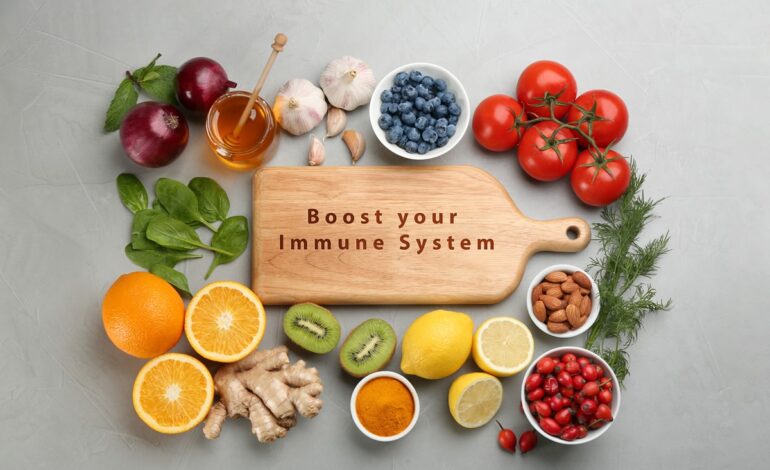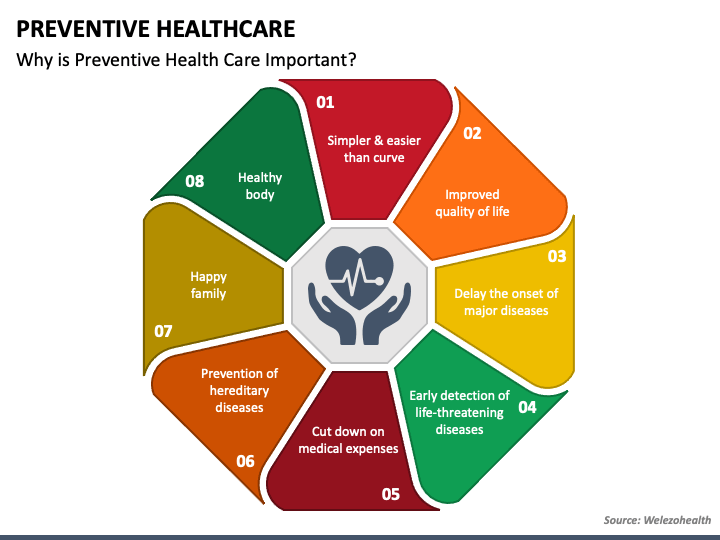Foods to Supercharge Your Immunity

“`html
Foods to Fortify Your Defenses: A Guide to Naturally Boosting Your Immunity
Our immune system is a complex network of cells, tissues, and organs working tirelessly to protect us from harmful invaders like bacteria, viruses, and other pathogens. While factors like sleep, stress management, and exercise play crucial roles in maintaining a robust immune response, the food we eat provides vital building blocks and support for these defenses. This post will delve into foods that naturally boost immunity, providing detailed information about their benefits and how to incorporate them into your diet.
Understanding Immunity & Nutrition’s Role
Before diving into specific foods, it’s important to understand the basic principles of immunity. A healthy immune system needs a variety of nutrients to function optimally. These include vitamins (A, C, D, E, and B6), minerals (zinc, selenium, iron), antioxidants, and probiotics. Deficiencies in these nutrients can weaken your immune response, making you more susceptible to illness.
Nutrition isn’t just about preventing deficiencies; it’s also about providing the raw materials for immune cells to develop and function effectively. For example, certain amino acids are essential for antibody production, while antioxidants protect immune cells from damage caused by free radicals – unstable molecules that can contribute to inflammation and weaken immunity.
Vitamin C Powerhouses: More Than Just a Cold Remedy
Vitamin C is arguably the most well-known nutrient associated with immune health. It’s an antioxidant that protects against cell damage, stimulates white blood cell production (crucial for fighting infection), and helps maintain the integrity of epithelial barriers like your skin and gut – the first line of defense against pathogens.
Citrus Fruits: Oranges, lemons, grapefruits, and limes are classic sources. Aim for at least one serving daily. Don’t forget that vitamin C is water-soluble, meaning it isn’t stored in the body and needs to be replenished regularly.

Berries: Strawberries, blueberries, raspberries, and cranberries are packed with Vitamin C and also rich in antioxidants called anthocyanins, which have potent anti-inflammatory effects.
Bell Peppers: Surprisingly, bell peppers (especially red ones) contain even *more* vitamin C than citrus fruits. Add them to salads, stir-fries, or roast them as a side dish.
Zinc: The Immune System’s Multi-Tasker
Zinc is essential for numerous aspects of immune function, including the development and function of immune cells (like neutrophils and natural killer cells), wound healing, and maintaining healthy mucous membranes. A deficiency in zinc can significantly impair immune response.
Oysters: Considered one of the best sources of zinc, oysters are a true immunity booster – if you enjoy eating them! However, they’re not an everyday food for most people.
Meat & Poultry: Beef, chicken, and turkey provide good amounts of zinc. Choose lean cuts to minimize fat intake.
Nuts & Seeds: Pumpkin seeds, cashews, and almonds are decent sources of zinc. Roasting them can improve their bioavailability (how well your body absorbs the nutrients).
Legumes: Beans and lentils contain zinc, though absorption can be improved by soaking or sprouting them.
Vitamin D: The Sunshine Vitamin & Immune Regulator
Vitamin D plays a crucial role in modulating immune responses. It helps regulate the activity of immune cells and is involved in both innate (immediate) and adaptive (long-term) immunity. Many people are deficient in vitamin D, especially during winter months or if they have limited sun exposure.
Fatty Fish: Salmon, tuna, mackerel, and sardines are excellent sources of Vitamin D. Aim for at least two servings per week.
Egg Yolks: Egg yolks contain a modest amount of vitamin D. Choose pasture-raised eggs if possible, as they tend to have higher levels.
Fortified Foods: Milk, yogurt, and some cereals are often fortified with Vitamin D – check the labels.
Sunlight: While sunlight is a natural source of vitamin D, factors like latitude, time of day, skin pigmentation, and sunscreen use can affect how much your body produces. Supplementation may be necessary to maintain adequate levels, especially in individuals at higher risk of deficiency.
Antioxidant Rich Foods: Fighting Free Radicals
Antioxidants protect our cells from damage caused by free radicals – unstable molecules that are produced during metabolism and can contribute to inflammation and weakened immunity. A diet rich in antioxidants is essential for overall health and immune support.
Dark Leafy Greens: Spinach, kale, collard greens, and other dark leafy greens are packed with vitamins (including A and C), minerals, and antioxidants like flavonoids and carotenoids.
Broccoli & Cauliflower: These cruciferous vegetables contain sulforaphane, a compound that has been shown to boost immune function. They’re also excellent sources of fiber, which supports gut health (see below).
Sweet Potatoes: Rich in beta-carotene, a precursor to vitamin A – another crucial nutrient for immune health.
The Gut-Immune Connection & Probiotics
Probiotics are beneficial bacteria that live in our gut. The gut microbiome plays a vital role in immunity, with approximately 70% of the immune system residing in the gut. A healthy balance of gut bacteria helps train the immune system to distinguish between harmful and harmless substances.
Yogurt & Kefir: These fermented dairy products are excellent sources of probiotics. Look for brands that specifically state they contain live and active cultures.
Fermented Foods: Sauerkraut, kimchi, kombucha, and miso are other examples of foods rich in probiotics.
Hydration – Often Overlooked!
Water is essential for virtually every bodily function, including immune response. Adequate hydration helps maintain healthy mucous membranes, which act as a barrier against pathogens. It also allows the efficient transport of immune cells throughout the body.
Putting it All Together: Dietary Strategies for Immune Boost
Eat a Rainbow: Aim for a variety of colorful fruits and vegetables daily to ensure you’re getting a wide range of vitamins, minerals, and antioxidants.
Prioritize Whole Foods: Focus on unprocessed foods like fruits, vegetables, lean protein sources, and whole grains.
Ferment Regularly: Incorporate fermented foods into your diet several times per week.
Stay Hydrated: Drink plenty of water throughout the day.
By incorporating these foods and dietary strategies into your daily routine, you can significantly strengthen your immune system and better protect yourself from illness. Remember that nutrition is just one piece of the puzzle – combining a healthy diet with adequate sleep, stress management, and regular exercise will provide the best defense against disease.
“`



